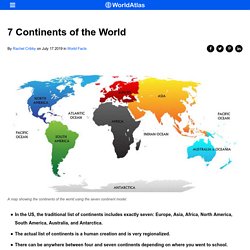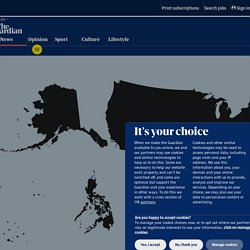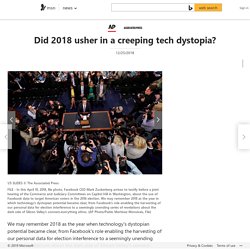

Fake News vs. Real News: Determining the Reliability of Sources. Video and a related lesson plan from TEDEd. Update: Please also see our new, 2017 lesson, Evaluating Sources in a ‘Post-Truth’ World: Ideas for Teaching and Learning About Fake News _________ How do you know if something you read is true? Why should you care? We pose these questions this week in honor of News Engagement Day on Oct. 6, and try to answer them with resources from The Times as well as from Edutopia, the Center for News Literacy, TEDEd and the NewseumEd. Although we doubt we need to convince teachers that this skill is important, we like the way Peter Adams from the News Literacy Project frames it in a post for Edutopia.
As he points out, every teacher is familiar with “digital natives” and the way they seem to have been born with the ability to use technology. Below, a roundup of tools, questions, activities and case studies we hope can help reduce this digital naïveté. Getting Started: What is News Literacy and Why Do You Need It? Video and a related lesson plan from TEDEd. 2. 7 Continents of the World - WorldAtlas. In the US, the traditional list of continents includes exactly seven: Europe, Asia, Africa, North America, South America, Australia, and Antarctica.

The actual list of continents is a human creation and is very regionalized. There can be anywhere between four and seven continents depending on where you went to school. There are seven continents in the world: Africa, Antarctica, Asia, Australia/Oceania, Europe, North America, and South America. However, depending on where you live, you may have learned that there are five, six, or even four continents.
This is because there is no official criteria for determining continents. Continents Africa Land Area: 30,370,000 km2 (11,730,000 sq mi) Population: 1,225,080,510 Number of Sovereign States: 54 Africa is the world's second largest continent by both land area and population. The climate of Africa consists of hot desert in the north and jungle and savannahs in the middle and south. Antarctica Asia Asia has the longest coastline of any continent. (35) The new scramble for Africa. Elizabeth Warren's call to disband tech giants is a step in the right direction (opinion)
3 reasons Elizabeth Warren's tech giant breakup plan is idiotic - aplakmeyer - IST Mail. How the US has hidden its empire. There aren’t many historical episodes more firmly lodged in the United States’s national memory than the attack on Pearl Harbor.

It is one of only a few events that many people in the country can put a date to: 7 December 1941, the “date which will live in infamy,” as Franklin D Roosevelt put it. Hundreds of books have been written about it – the Library of Congress holds more than 350. And Hollywood has made movies, from the critically acclaimed From Here to Eternity, starring Burt Lancaster, to the critically derided Pearl Harbor, starring Ben Affleck.
But what those films don’t show is what happened next. Nine hours after Japan attacked the territory of Hawaii, another set of Japanese planes came into view over another US territory, the Philippines. The attack on Pearl Harbor was just that – an attack. Contrary to popular memory, the event familiarly known as “Pearl Harbor” was in fact an all-out lightning strike on US and British holdings throughout the Pacific. How I Would Spend Trump’s Wall Money. International (Dis)Order. Did 2018 usher in a creeping tech dystopia? We may remember 2018 as the year when technology's dystopian potential became clear, from Facebook's role enabling the harvesting of our personal data for election interference to a seemingly unending series of revelations about the dark side of Silicon Valley's connect-everything ethos.

Load Error The list is long: High-tech tools for immigration crackdowns. Fears of smartphone addiction . YouTube algorithms that steer youths into extremism. An experiment in gene-edited babies . Doorbells and concert venues that can pinpoint individual faces and alert police. It's been enough to exhaust even the most imaginative sci-fi visionaries. "It doesn't so much feel like we're living in the future now, as that we're living in a retro-future," novelist William Gibson wrote this month on Twitter.
But there are also countermeasures afoot in Congress and state government — and even among tech-firm employees who are more active about ensuring their work is put to positive ends. It wasn't just Facebook.